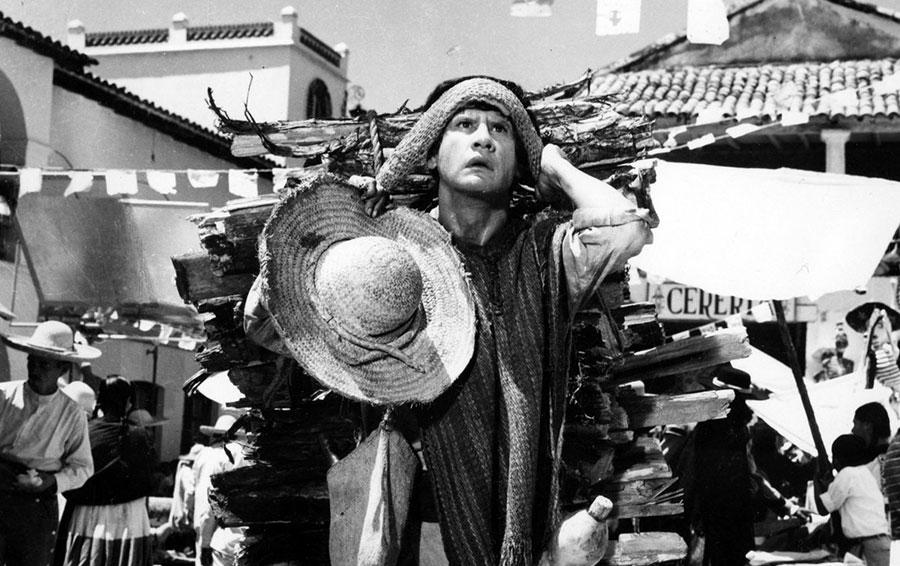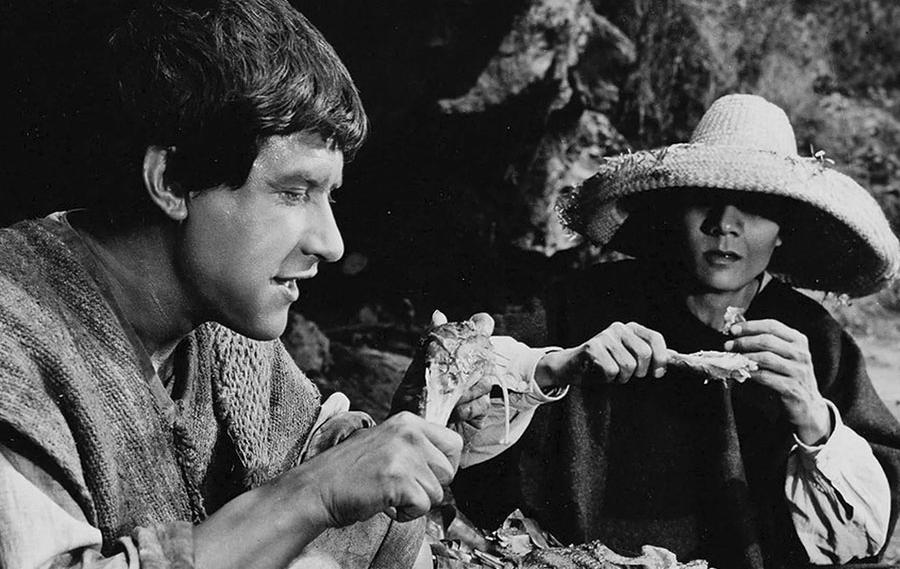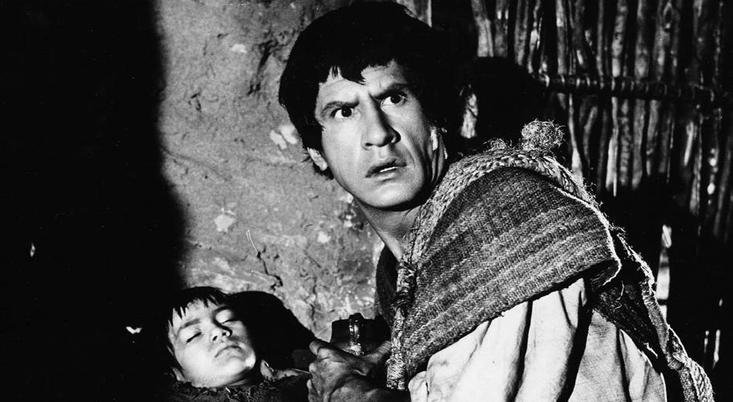
3 minute read
CELLULOID: MACARIO MASTER J. Ricardo Félix
MACARIO
Maestro Jesús Ricardo Félix
Advertisement
The Mexican's relationship with death is very particular, what in other countries would be considered a taboo subject in ours is part of the imaginary, tradition, beliefs. In Mexican art, the bony woman frequently appears as the protagonist, muralists, writers, filmmakers, singers approach the subject in a humorous, everyday way or as if it were an inspiring muse. The iconic catrinas of José Guadalupe Posada became part of the history of national symbolism, Diego Rivera's chickpea skull in the Alameda, Francisco Toledo's skulls and many more examples.
Then there is the theme of the day of the dead, which seems to be the result of a fusion of indigenous traditions with Christianity imported by the Spanish. The tradition, simply described, involves the return or visit of the souls of the deceased to the world of the living to receive offerings. These offerings are placed on an altar that represents the seven levels that the soul must go through to reach eternal rest or peace. A photograph of the deceased is usually placed with various foods, drinks or items with which to remember him, sugar skulls, bread of the dead, flowers, etc. should not be missing. That is why this week that we celebrate the conclusion of the national holidays, we will talk about an iconic film in the history of Mexican cinema: Macario.
Macario is a 1960 Mexican film directed by Roberto Gavaldón in collaboration with the famous photographer Gabriel Figueroa. Roberto Gavaldón is located between the period of the golden cinema and his later stage, he would collaborate with artists such as Gunther Gerzso, José Revueltas, Carlos Fuentes, Gabriel García Márquez, etc. In Macario's case, the film's script is based on a short story by the writer B. Traven.
Macario, played by Ignacio López Tarso, is a very humble woodcutter who tries to support his family by selling wood during the times of the Holy Inquisition. His large family is limited to eating beans almost daily, the peasant, who sometimes goes hungry in order to feed his children, becomes obsessed with the idea of eating a turkey by himself. Macario's wife, played by Pina Pellicer, secretly saves money to materialize her dream. The day that Macario manages to see his dream come true, he receives a visit from three mysterious characters. The woodcutter only offers his chicken to one of them who rewards him with a special gift that will change his life. The humble peasant emerges from anonymity becoming a renowned healer, but the whim of fate that raised him to the clouds now intends to make him fall to become one more.
Definitely recommended, it is one of my favorite Mexican films despite not occupying the first places in the ranking of best national films. The aesthetic quality that Figueroa provides, with the narrative fluidity of Gavaldón and the performance of López Tarso make it a classic that can be seen over and over again without getting angry. Some will say that it is about death, others about the fragility of life or even social criticism. The truth is that Macario is a film that impresses everyone who sees it and without being produced in the era of golden cinema, it retains the quality of the best times of national cinema. It would also be the first Mexican film to be nominated for an Oscar as best foreign film, being screened at international festivals such as Cannes.
See it on Youtube: https://www.youtube. com/watch?v=b0oUgGpH8tU&t=1562s












